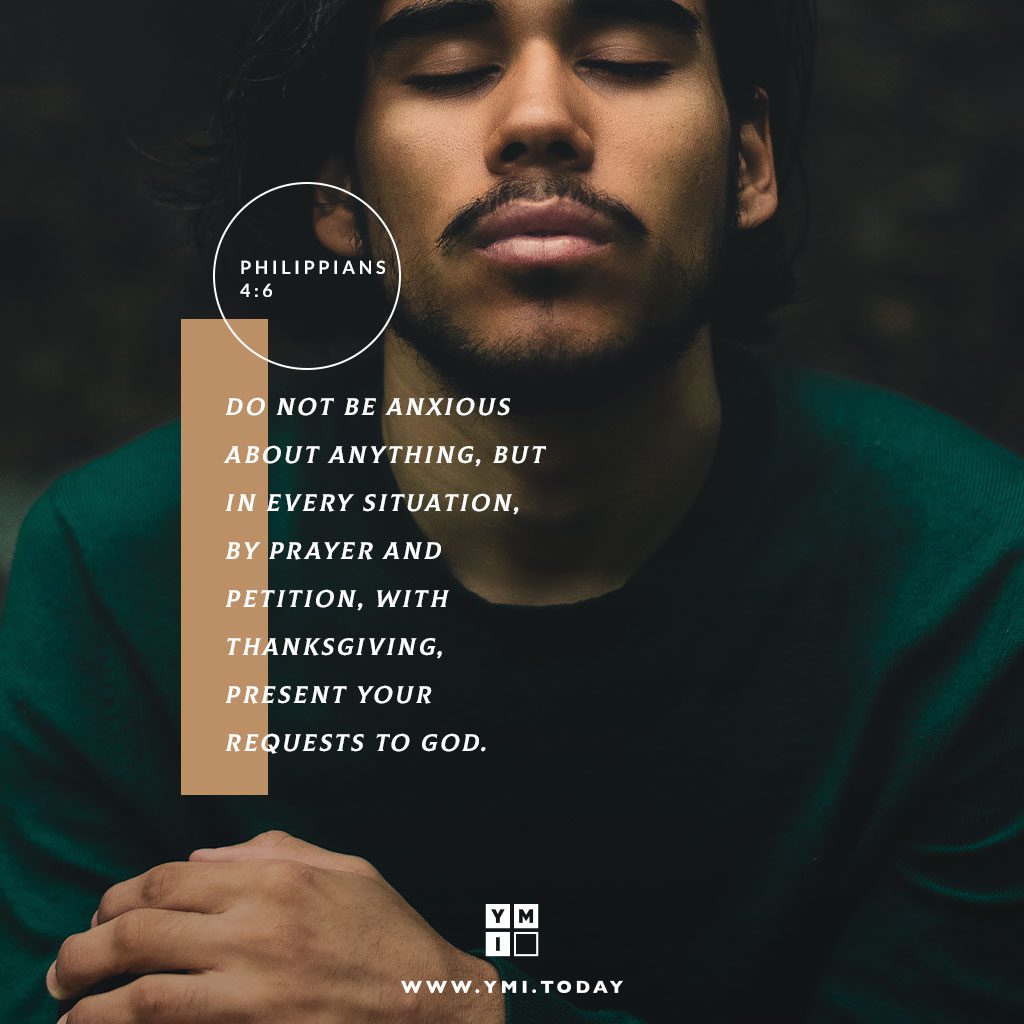How to Overcome Anxiety
Peace has always been extremely elusive to me. I understood the concept, but never truly felt peace—until I started applying for university.
Graduating from Polytechnic with average grades, I feared that I would not have a university to go to. With every word that I wrote on my university applications, the dreadful feeling of uncertainty grew within me. Huge tears rolled down my face as I realized how much I paled in comparison to my friends who achieved good grades and had stellar extra-curricular records.
I knew God was good and faithful. Yet, my situation still felt so hopeless. I couldn’t even tell myself to calm down and pray, let alone surrender it to God.
As I sat on that cold, black couch waiting for my interview with one of the universities, I was so afraid. I felt like I couldn’t breathe. A scripture that I had memorized as a kid—Philippians 4:6-7—came to mind, and I recited that repeatedly. Slowly, my breathing stabilized and I prayed. As I poured out all my emotions to Him, His peace washed over me. In that moment, I felt the calmest in the five months since I had begun my university applications.
Writing to the Philippian church, the Apostle Paul declared this command in absolute terms, “Do not be anxious about anything”—no buts, no ifs, no exceptions. Though Paul was imprisoned (Philippians 1:13), and the Philippian church faced false teachers (Philippians 3:2), Paul still encouraged the church to not allow these things to distract them from, or rob them of, their everlasting joy in Christ.
What gave Paul such courage to say it so firmly and confidently? Jesus Himself commanded us thrice in Matthew 6 not to succumb to worry and anxiety (v. 25, 31, and 34). We do not have to worry because of one simple fact: God cares for us and will provide for our needs.
Combating anxiety sounds easier said than done, but Paul has a simple suggestion for us: pray. If we truly trust in the sovereignty of God in every situation, we can lift up our circumstances to God, and trust that He will work “for the good of those who love Him” (Romans 8:28).
Paul encourages us to pray “with thanksgiving,” and not just when we need something from God, but “in every situation.” Having the attitude of thanksgiving is so important because it reminds us that God has already given us the greatest Gift that will satisfy—His Son, Jesus Himself—and we really do not need or deserve anything else from Him. Thanksgiving comes from a posture of recognizing that everything we have from God is purely by grace. It humbles us to see that God is not obliged to give us anything, and yet has supplied all we need in abundance. With that understanding, we can truly rejoice (Philippians 4:4).
When I come to God with a posture of thanksgiving and present my requests to Him, I find it easier to let go of my anxiety. Prayer needs to take the place of worry in our lives. Prayer realigns our thoughts and our behaviors, and restores the precious gift of peace that comes from God alone.
In the end, I did not get into the course I wanted, but I received something immeasurably greater—the knowledge that when I submit my fears to God, He will guard my heart and mind with an indescribable, reassuring peace. God is truly in control; He holds us tightly in the palms of His hands, and He will never let us go. To me, that’s more than enough, and I sincerely hope it will be for you too.
—By Constance Goh, Singapore
Questions for reflection

Return to YMI Reading Philippians Homepage



Leave a Reply
Want to join the discussion?Feel free to contribute!